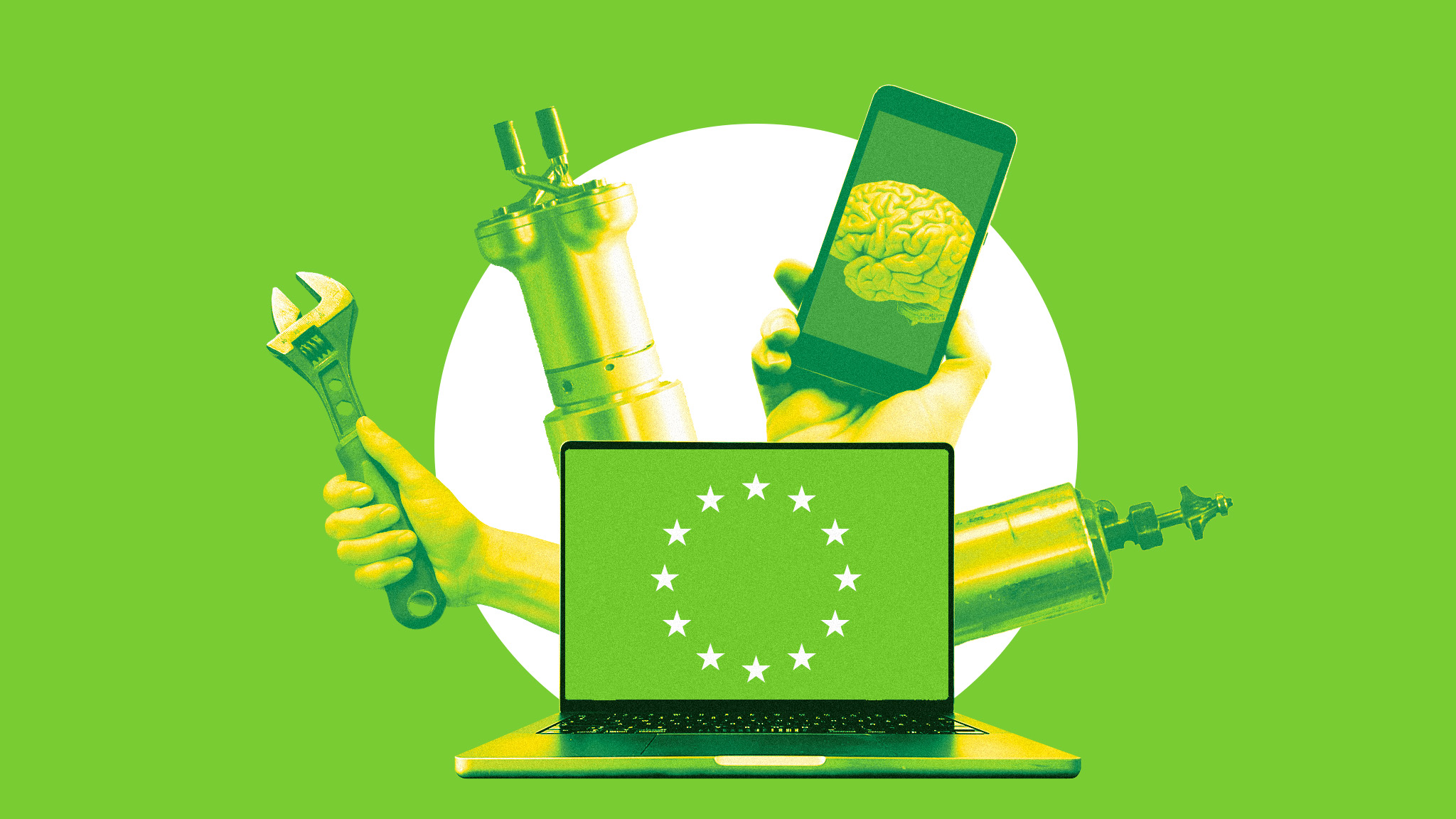Europe has the potential to improve its position in the global AI race, but this will require determined action from Europe so it can take the next step in AI development, says a new Sitra report.
AI is accelerating and the next major step will be highly specialised AI models and applications across different industries. While general-purpose AI applications such as ChatGPT have made knowledge work more efficient, industry-specific applications are now being developed to accelerate the transformation of sectors such as manufacturing and healthcare.
The applications enable companies and organisations to solve complex problems in their industries, streamline and automate their processes and modernise the core of their business.
Sitra’s working paper Applying AI in key European industries – strengthening competitiveness and innovation in Europe estimates that the widespread use of applied AI will have a significant impact on productivity and growth.
The report was commissioned by Sitra and written by Mika Ruokonen, Industry Professor of Digital Business at LUT University.
Artificial intelligence as a competitive advantage
Industry-specific AI models and so-called AI agents, that is, software that supports task automation, offer companies opportunities to significantly improve their competitiveness.
According to Heikki Aura, Senior Lead at Sitra, Europe’s strengths in the AI field lie in technologically advanced industries that provide valuable data for AI models.
“It is important that industrial companies, for example, have access to the data generated by industrial equipment and processes at different stages. Such data can include for example the operating and failure history of machines stored in the systems of maintenance companies and equipment manufacturers. This data can be used to train specialised AI models that a company can use to predict maintenance needs,” says Aura.
When the need for maintenance is detected, the AI agent could automatically order the repair service and prevent a critical piece of equipment from breaking down. There would be several such agents in the company, working collaboratively.
“Competitive advantage in business is not achieved with generic tools that are widely available. AI will improve productivity most when data is used strategically and combined with applied AI solutions. The potential for economic and industrial renewal is then significant,” says Mika Ruokonen, author of the report.
There is a pressing need for new solutions. Poor productivity in the business sector is the biggest problem in Finland’s economy, and digitalisation has not been sufficiently harnessed as a source of growth. This is the assessment of a recent Sitra report by Emeritus Professor of Economics Matti Pohjola.
Ensure European autonomy in critical AI technologies
Europe’s fragmented markets and dependence on foreign technology suppliers have slowed the adoption of AI, and Europe has not kept up with the pace of investment made by the US and China. The situation in Finland is relatively good: Finland ranks fifth internationally in AI investment per capita.
Europe should therefore invest in specialised AI models to boost innovation and ensure autonomy in AI, the report suggests.
“Autonomy needs to be strengthened, especially in critical AI technologies such as cloud infrastructure and semiconductors. For example, around 80 percent of European data is hosted in US cloud services. This is a risk for Europe if it becomes more difficult to exploit, analyse and further process data,” says Aura.
Moreover, it must be ensured that businesses in Europe have access to sustainable and affordable computing capacity and large language models in all official EU languages. Also, it is necessary to invest in skills and to channel investment funds quickly and efficiently to help European businesses.
In February, the European Commission announced an initiative to mobilise €200 billion of investment in AI.
“Finland’s strengths in AI are well known. We can benefit from EU investment. At best, we can create significant new AI companies in Finland,” says Ruokonen.
Read more
Sitra’s working paper: Applying AI in key European industries – strengthening competitiveness and innovation in Europe



